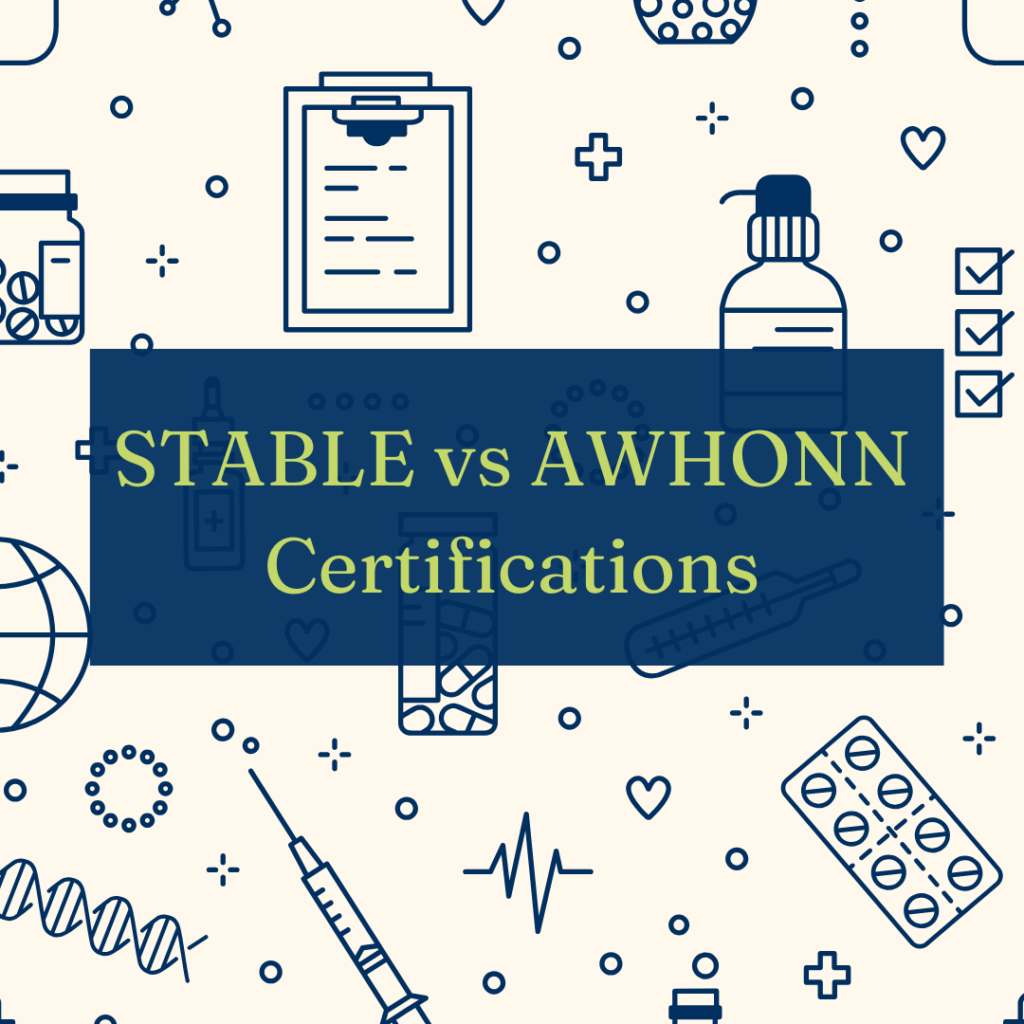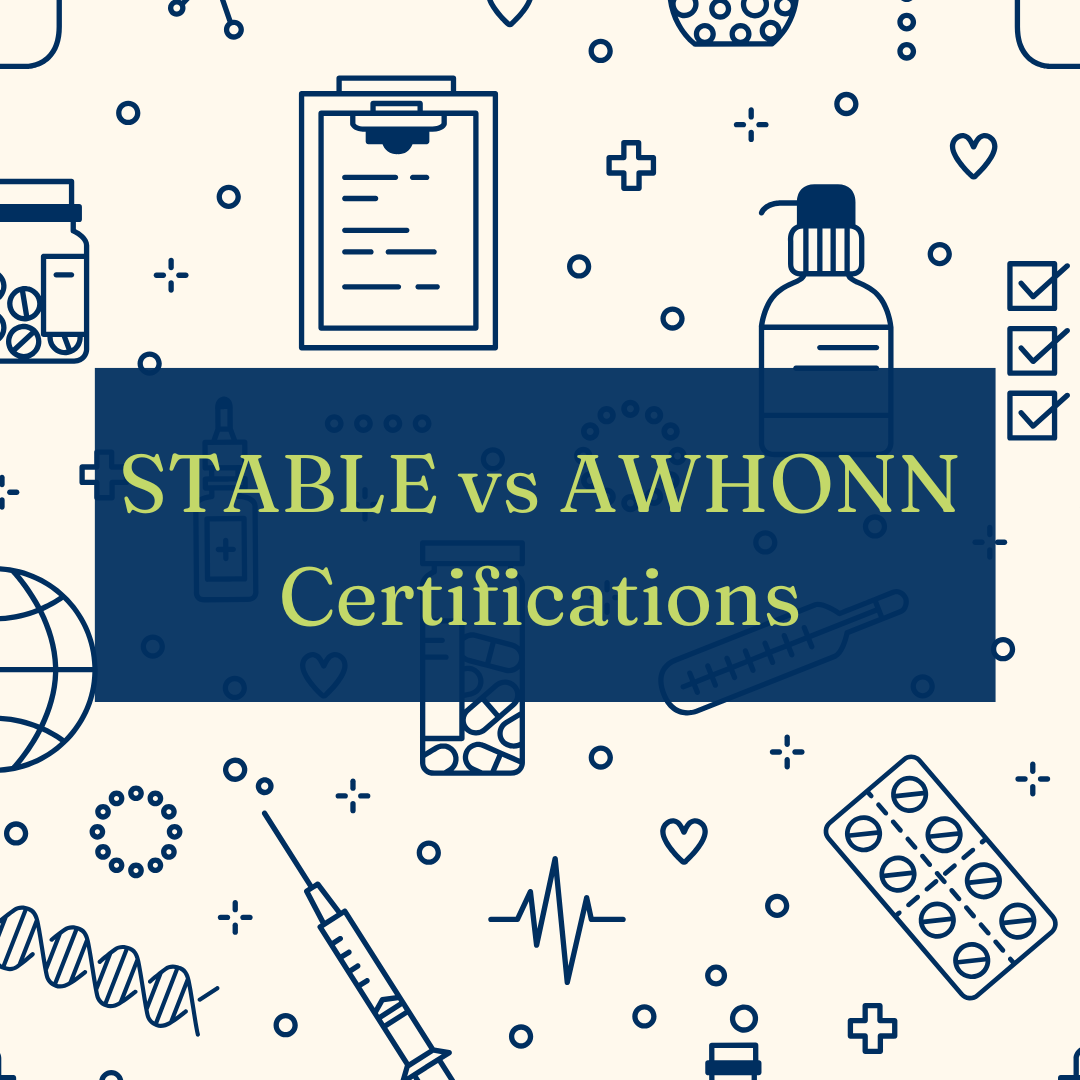
As a Labor & Delivery or NICU nurse, the more certifications you have, the more valuable and marketable you become—especially when it comes to competitive travel nursing assignments. Two of the most requested certifications in perinatal and neonatal care are STABLE and AWHONN Fetal Heart Monitoring (FHM). But what exactly is the difference between them? And how can they help you land top travel jobs?
Let’s break it down.
What Is STABLE?
STABLE stands for:
- Sugar
- Temperature
- Airway
- Blood pressure
- Lab work
- Emotional support
It’s a structured program designed to teach nurses how to stabilize a newborn in the first hours of life—particularly when immediate NICU access isn’t available. It’s commonly used in:
- Community hospitals
- Critical access hospitals
- Transport teams
- Level I–II NICUs
Why It Matters for Travel Nurses
Hospitals in rural or smaller communities often need nurses who are trained to manage newborns until they can be transferred to a higher-level NICU. Having STABLE on your resume shows that you’re confident in early neonatal resuscitation and stabilization, making you more attractive to facilities that rely on cross-functional L&D teams.
What Is AWHONN Fetal Heart Monitoring?
AWHONN, the Association of Women’s Health, Obstetric and Neonatal Nurses, offers Intermediate and Advanced Fetal Heart Monitoring (FHM) courses. These courses teach you how to:
- Interpret fetal heart tracings
- Monitor labor progress
- Respond to signs of fetal distress
- Use intrauterine resuscitation techniques
AWHONN FHM is often required in:
- High-risk L&D units
- Level III–IV hospitals
- Academic medical centers
- Urban OB units with high volume
Why It Matters for Travel Nurses
Many hospitals—especially larger, high-acuity facilities—require AWHONN FHM as a baseline certification for travel nurses. If you’re looking to land assignments in urban centers or high-risk labor and delivery units, this certification is often non-negotiable.
The type of facility you work in can influence which certifications are most valued. For example, rural or community hospitals typically prioritize the STABLE certification, since nurses often need to manage neonatal care independently before transport. In Level I or II nurseries, STABLE is commonly expected, and in some cases, both STABLE and AWHONN may be preferred. For Level III or IV NICUs and L&D units, the AWHONN Fetal Heart Monitoring certification is usually required, while STABLE is often considered a strong bonus. In academic or research hospitals, having both certifications shows preparedness for high-acuity and teaching environments. Finally, children’s or maternity specialty hospitals often expect travel nurses to hold both AWHONN and STABLE, given the complexity and volume of cases they handle. Having either—or both—can make you a stronger candidate depending on the setting.
Boost Your Marketability as a Travel Nurse
Whether you’re looking to work in a critical access hospital in Arizona or a high-volume L&D unit in New York, having both STABLE and AWHONN FHM gives you a competitive edge.
Here’s how to use them to market yourself:
- Include certs at the top of your resume and travel profile.
- Mention in recruiter conversations that you’re STABLE- and/or AWHONN-certified.
- Highlight any experience in facilities that required you to use those skills in real time.
- Be open to facilities that prefer one over the other—flexibility is key.
How to Get Certified
- STABLE Courses: In-person through hospitals, NICUs, or local perinatal outreach programs. Find upcoming sessions at STABLEprogram.org.
- AWHONN FHM Courses: Offered via hospitals, nursing associations, or online with a classroom component. Check AWHONN’s website or contact local nurse educators.
We Reimburse for Your Certification – Here’s How
We know that keeping up with certifications like STABLE and AWHONN Fetal Monitoring isn’t just important—it can be expensive. That’s why we’re proud to support our nurses by reimbursing certification or recertification costs when you’re on assignment with us.
Here’s how it works:
- Complete your cert (or recert) while actively contracted with us
- Submit your documentation (receipt and course completion)
- We’ll reimburse you for eligible expenses, typically within the same pay cycle
It’s our way of investing in you and your clinical growth, while also helping you stay competitive for top assignments.
Take a look at our current open positions [here] or contact one of our recruiters today!


 and then
and then